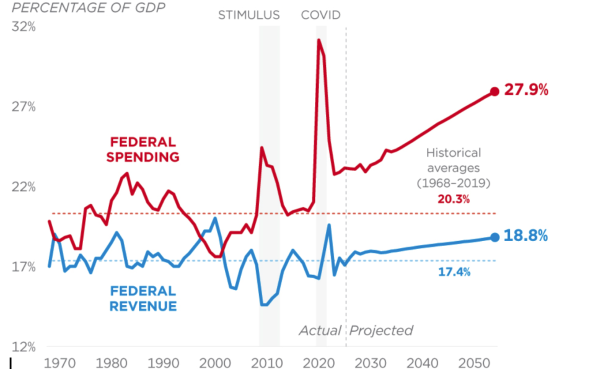Juniors transition back to campus life after Chewonki
At Westminster, learning is not restricted to the confines of an Askew classroom, or even the 180 acres that define campus, as the school provides its students with unique opportunities and experiences that allow students to learn flexibly. These opportunities present themselves in many forms: the freshman Discovery program, JanTerm courses, and the countless extracurriculars and clubs that Westminster offers. Recently, Westminster juniors returned from a Maine Coast Semester at Chewonki—another one of the many programs that allows Westminster students to learn outside of a traditional classroom setting.
The Maine Coast Semester at Chewonki is a program open only to juniors that aims to couple a rigorous curriculum with full-fledged immersion in the natural world. At Chewonki, students have access to over 400 acres of farmland for their education and exploration. Students spend a full semester boarding on the beautiful coast of Maine in Chewonki’s cabins, where they take traditional classes, work on the onsite farm, and explore the coast of Maine. These three aspects of Chewonki create the perfect atmosphere for experimental education, or learning by doing. As a result of this pursuit to provide Chewonki students with real experimental education, the students’ schedules vary from day to day but typically involve half of the day spent in classes and the other half taking place at different work programs or field trips. Students often cite work programs as a highlight of their experience.
“I would always look forward to the work programs on Tuesdays and Fridays, where we would do anything from maintenance to working on the farm,” said junior Grant Pinkston. “I really liked them, because I got to do things that I would’ve never done at Westminster, like slaughtering chickens.”
Through the eyes of someone who has worked at both Chewonki and Westminster, the similarities between the two entities are apparent. Emily Horne, a leader of the Discovery team, worked at Chewonki 12 years ago before coming to Westminster, and sees the Chewonki philosophy of “learning by doing” mirrored in many of the courses that Westminster students take part in.
“Chewonki’s identity is centered around experimental education,” said Horne. “This quality is deeply embedded in everything at Chewonki and is also seen in all of the applied learning opportunities that Westminster offers to students such as the JanTerm and Discovery courses.”
Although the flexible schedules and hands-on education does not seem reminiscent of an average Westminster school day, the students who have experienced both insist that there are some prominent similarities. They argue that Chewonki and Westminster are comparable, because, at their cores, both provide the staple high school experience, complete with a strong social element.
“The same issues exist at Chewonki,” said Pinskton. “There’s still drama within the students, like at Westminster.”
In addition to the similarities in the social aspects of Westminster and Chewonki, some assert that the academics at Chewonki and Westminster remain alike, despite the hours that students spend outside of the classroom at Chewonki.
“You had a little less work in general at Chewonki, but you also had less time to do it because of your other duties,” said 2016 Chewonki student Rains Draper. “I’d say that it’s around the same level of difficulty overall, but for different reasons.”
Though many courses between Westminster and Chewonki overlap, Chewonki distinguishes itself with its hands-on teaching style and emphasis on the outdoors. These unorthodox strategies add up to a more straightforward academic experience in the eyes of some students.
“I would say that Westminster is more academically challenging than Chewonki,” said Pinkston. “Because Chewonki integrates nature into the classroom by adding work at the farm and outdoor field trips, the time we have for class shrinks as a result of these other commitments, making our overall workload smaller and easier to handle.”
In addition to the different style of learning endemic to Chewonki, the relationships forged on the coast of Maine were unique as well.
“The relationships with both the faculty and the other students were so different at Chewonki,” said Pinkston. “We called all of the teachers by their first names and had so many more in-depth conversations with people—something that I feel like doesn’t happen as much at Westminster.”
Chewonki’s boarding aspect and beautiful backdrop can garner comparisons to a retreat—a far cry from the challenging and sometimes stressful environment that an ultra-competitive traditional school like Westminster often breeds.
“Living in cabins with 45 people and working on the onsite farm made Chewonki feel more similar to a camp than a school,” said Pinkston. “It’s almost relaxing.”
As students who participated in Chewonki last semester return to Westminster, they are generally confident in their ability to transition back to life on campus.
“It probably won’t be that bad, but I’ll definitely see an academic change when JanTerm ends,” said Pinkston. “The campus does take getting used to, because I’m used to sharing miles of space with just 45 students, but now I can walk into the campus center and see that number in a room with a couple hundred square feet.”
Regardless of the intimidating prospect of transitioning back to life at Westminster, former Maine Coast Semester students insist that Chewonki is an amazing opportunity to make lifelong memories and friendships.
“I had a great experience,” said Pinkston. “I’ve never heard anyone say something negative about their time at Chewonki.”




